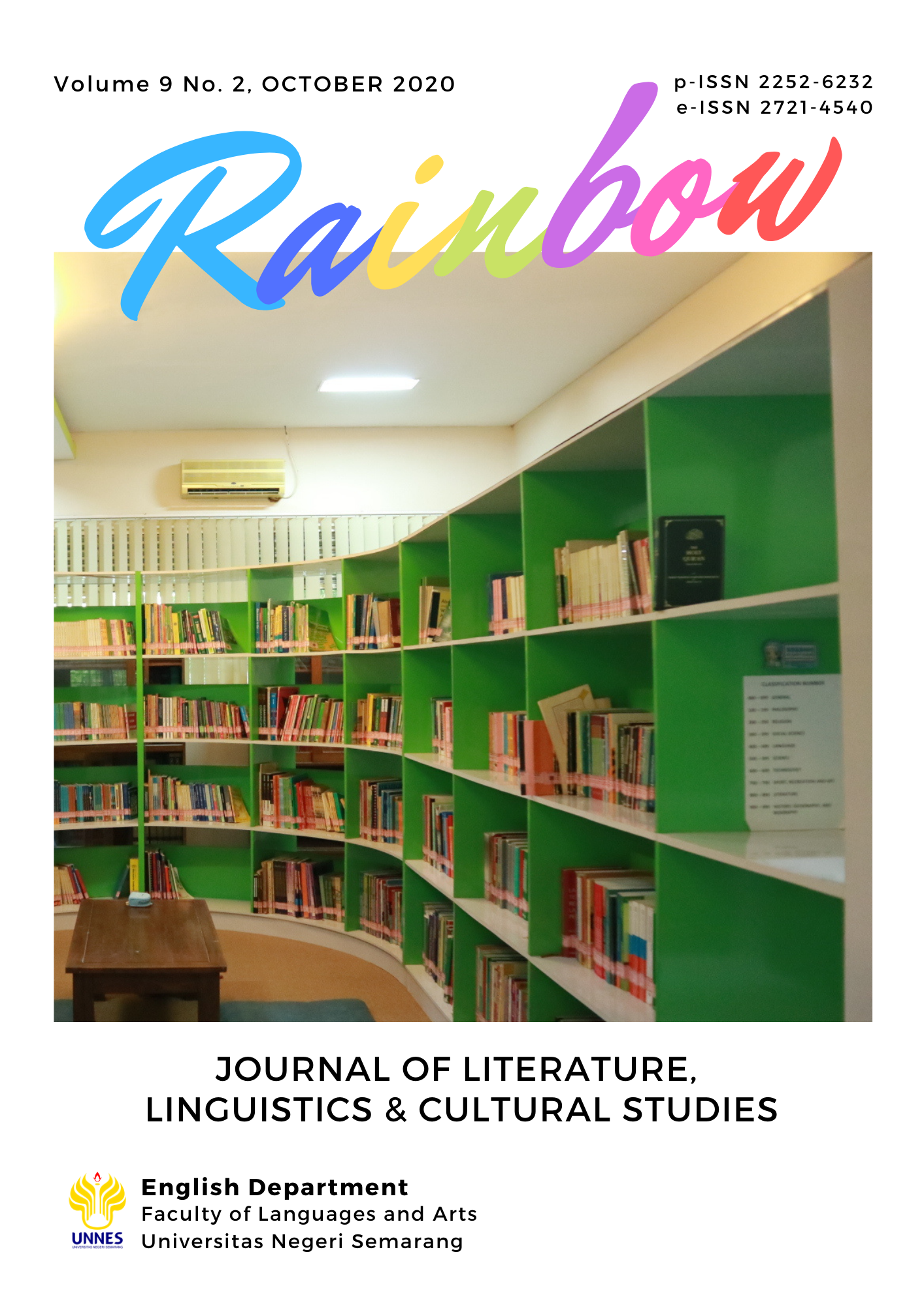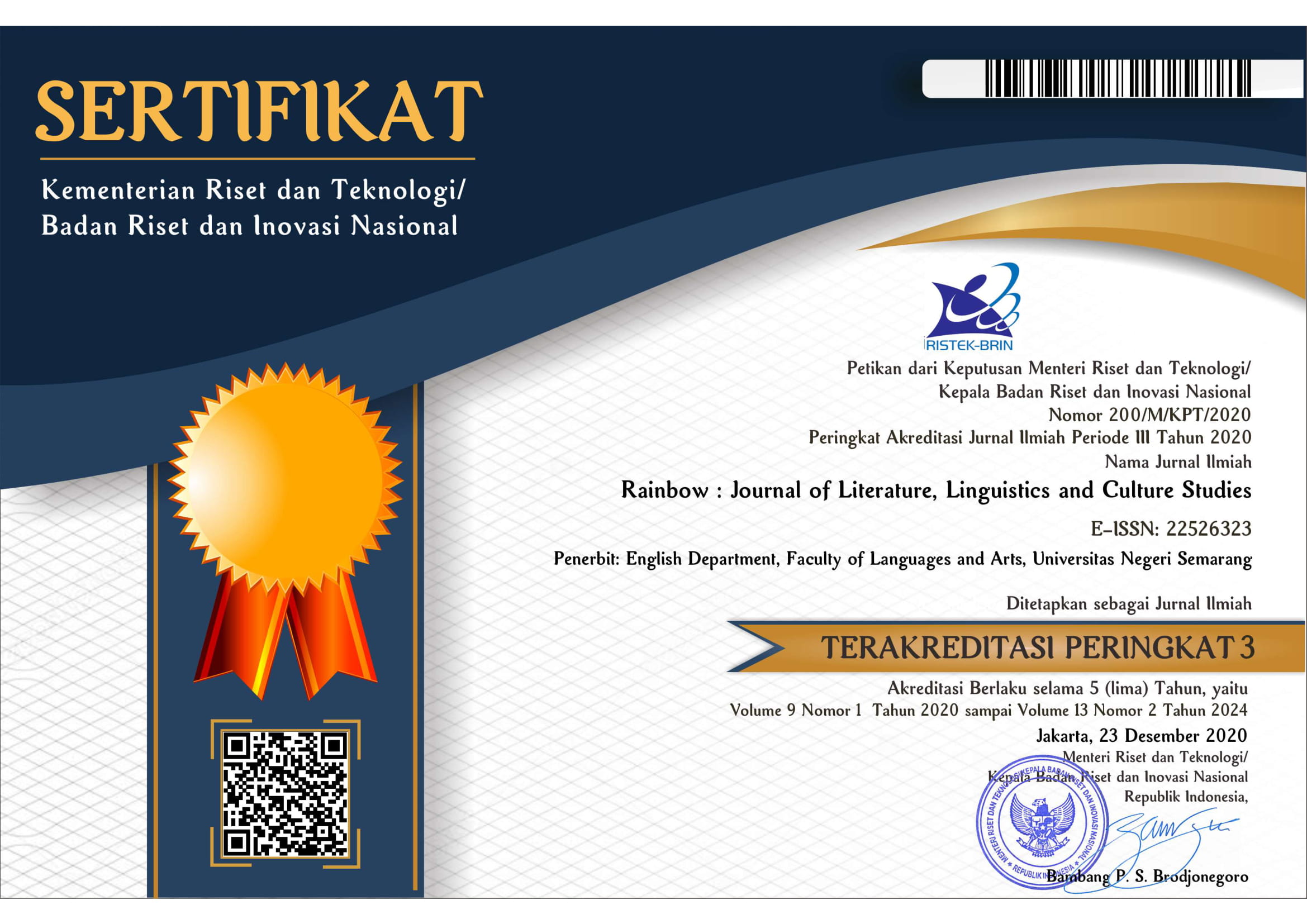Pre-partition India and the Rise of Indian Nationalism in Amitav Ghosh’s 'The Shadow Lines'
A Postcolonial Analysis
Abstract
The Shadow Lines is mostly celebrated for capturing the agony and trauma of the artificial segregation that divided the Indian subcontinent in 1947. However, the novel also provides a great insight into the undivided Indian subcontinent during the British colonial period. Moreover, the novel aptly captures the rise of Indian nationalism and the struggle against the British colonial rule through the revolutionary movements. Such image of pre-partition India is extremely important because the picture of an undivided India is what we need in order to compare the scenario of pre-partition India with that of a postcolonial India divided into two countries, and later into three with the independence of Bangladesh in 1971. This paper explores how The Shadow Lines captures colonial India and the rise of Indian nationalism through the lens of postcolonialism.
References
Bakshi, S. R., & Ritu C. Eds. (2007). Bihar Through the Ages. Sarup & Sons.
Banglapedia. (n.d.). Anushilan Samiti. In Banglapedia.org. Retrieved August 10, 2020, from http://en.banglapedia.org/index.php?title=Anushilan_Samiti
Banglapedia. (n.d.). Bagha Jatin. In Banglapedia.org. Retrieved August 10, 2020, from http://en.banglapedia.org/index.php?title=Bagha_Jatin
Banglapedia. (n.d.). Jugantar Party. In Banglapedia.org. Retrieved August 10, 2020, from http://en.banglapedia.org/index.php?title=Jugantar_Party
Chandan, Shahnawaz Khan. “The Man behind the Myth.†The Daily Star, 7 Mar. 2015, www.thedailystar.net/the-man-behind-the-myth-41075. Accessed 10 August 2020
Daiya, K. (2008). Violent Belongings: Partition, Gender, and National Culture in Postcolonial India. Temple University Press.
Fanon, F. (1963). The Wretched of the Earth. (C. Farrington, Trans.). Grove.
Fanon, F. (2008). Black Skin, White Masks. (C. L. Markmann, Trans.). Pluto.
Ghosh, A. (1995). The Shadow Lines. Oxford UP.
Hay, J. (2006). The Partition of British India. Chelsea House Publishers.
Khan, Y. (2017). The Great Partition: The Making of India and Pakistan. Yale University Press. “Remembering Khudiram Boses, the Youngest Revolutionary Who Was Hanged at the Age of 18.†(2016, December 3). India Today. https://www.indiatoday.in/education-today/gk-current-affairs/story/khudiram-bose-355435-2016-12-03
Meyer, W. S. (1931). The Imperial Gazetteer of India. Oxford University Press.
Nehru, J. (1994). The Discovery of India. Oxford University Press.
Prasad, B. (2001). Pathway to India's Freedom: A Nation within a Nation 1877-1937. The University Press Limited.
Singh, J. (2009). Jinnah: India – Partition – Independence. Rupa & Co.
Tharoor, S. (2017). Inglorious empire: What the British did to India. C. Hurst.
Wolpert, S. (2006). Shameful Flight: The Last Years of the British Empire in India. Oxford University Press.







